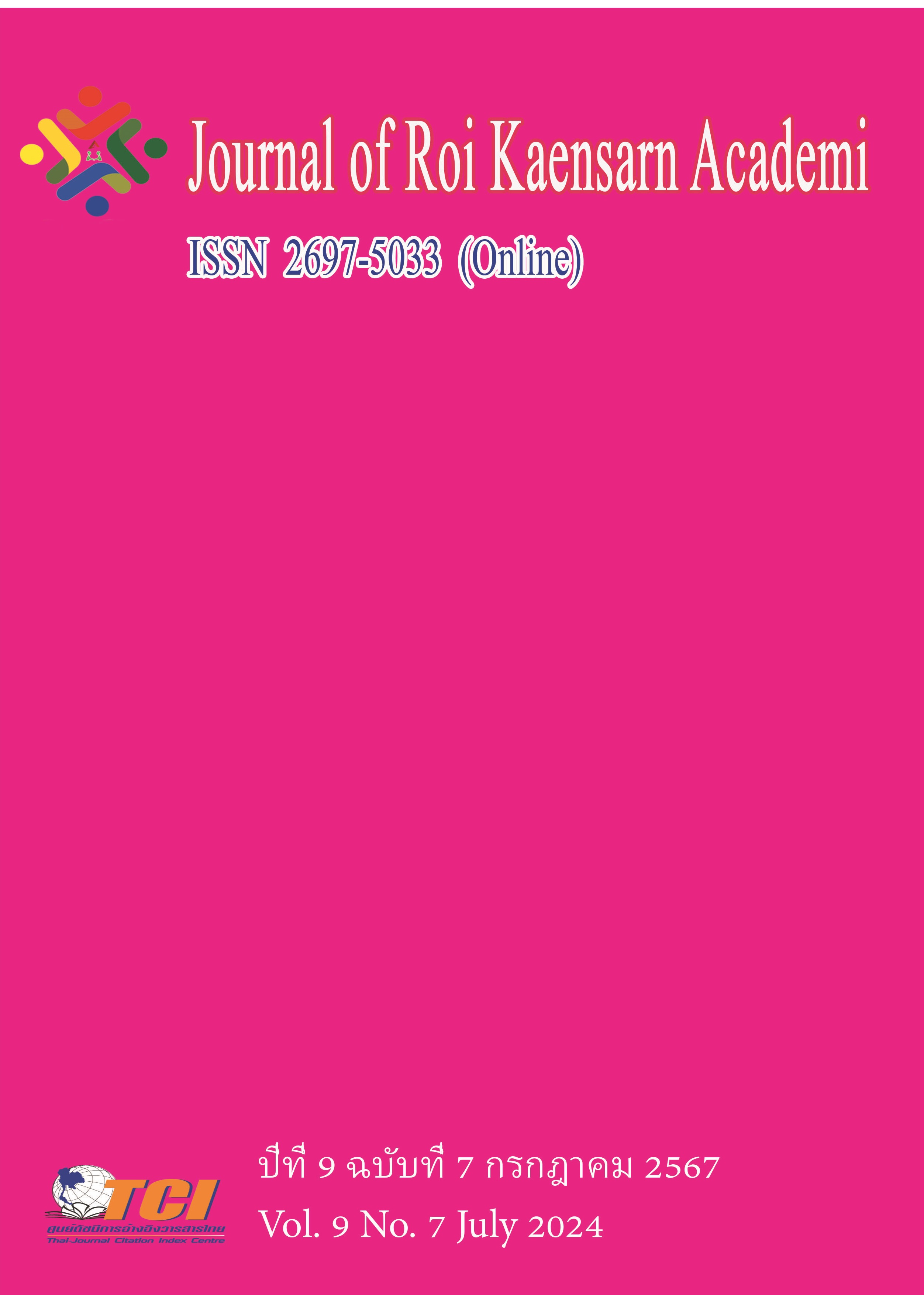The Research on the Interaction Between Learning Power and Learning Outcomes of Engineering College Students Under the Background of China Engineering Education Accreditation
Main Article Content
บทคัดย่อ
This paper focuses on the intricate interaction between learning power and learning outcomes among engineering college students within the context of China's Engineering Education Accreditation. The study aims to explore : 1.the role of learning power on learning outcomes from the perspective of learning power system, adjustment power system, behavior power system and support power system by comparing the influence degree of different factors; 2.various strategies that can effectively improve the level of college students' learning power. The sample were 517 junior and senior undergraduate students from engineering universities. They were selected by the questionnaire investigation,the research instrument for the data collection were SoJump. The statistics for data analysis were carried out by descriptive statistical analysis, correlation analysis and regression analysis with SPSS 25.0, to determine the degree of correlation between each element and learning outcome according to the correlation coefficient and significance level. The research results were found as follows: 1.The mean ranking of each factor of engineering students' learning power from high to low is power system, support force system, behavior force system and adjustment force system respectively; 2. The scores of senior students in learning power and learning outcomes are significantly higher than those of junior students, and the scores of CPC members (including probationary party member) in learning power and learning outcomes are significantly higher than those of Communist Youth League members and the masses. The scores of students who have participated in discipline competitions are significantly higher than those without participating in discipline competitions, and the scores of students who have participated in teacher's project research or interest group are significantly higher than those without participating in teacher's project research or interest group;3.There is a significant positive correlation between the motivation power system, behavior power system, adjustment power system and support power system system of learning power and the learning outcomes.the paper suggests that we can effectively improve the learning outcomes of engineering students through stimulating students' learning interest, rationally arranging learning time, providing quality teaching resources, strengthening psychological counseling and support, and cultivating students' self-regulation ability.
Article Details
เอกสารอ้างอิง
Anlei, J., & Binglin, Z. (2020). The situation, problems, and paths of cultivating first-class engineering and technical talents. Journal of the National School of Education Administration. 267 (03), 65-70.
Yi, Y., et al. (2023). Reflection on the lifelong learning ability of college students from the perspective of new engineering. Journal of Shanghai University of Technology (Social Sciences Edition). 45 (03), 337-342.
Wang, Y. (2023). A study on the learning ability of engineering students in local comprehensive universities under the background of new engineering [Master’s thesis, Shanxi University].
King, P. M., & Kitchener, K. S. (1994). Developing reflective judgment: Understanding and promoting intellectual growth and critical thinking in adolescents and adults. Jossey-Bass.
He, W. (2013). The cultivation of learning ability among college students under the concept of "learner-centered". Educational Research. 34 (03), 106-111.
Shaeiwitz, J. A. (1996). Outcomes assessment in engineering education. Journal of Engineering Education. 85 (3), 239-246.
Froyd, J. E., Wankat, P. C., & Smith, K. A. (2012). Five major shifts in 100 years of engineering education. Proceedings of the IEEE, 100(Special Centennial Issue), 1344-1360.
Dan, Y. (2015). A Study on the Evaluation of Learning Effectiveness for Engineering Students [Master’s thesis, Shanghai Jiao Tong University].
Zhou, H. (2022). Research on strategies for stimulating learning motivation of vocational school students [Master’s thesis, East China University of Technology].
Wu, A. (2021). Research on strategies for enhancing the online learning ability of rural teachers [Master’s thesis, Southwest University].
Zimet, G. D., Dahlem, N. W., Zimet, S. G., & Farley, G. K. (1988). The multidimensional scale of perceived social support. Journal of Personality Assessment. 52 (1), 30-41.
Tang, J. (2021). The study on the structure and influence of college students' learning ability [Master’s thesis, Nanjing University of Posts and Telecommunications].
Stephanie, A. (2008). The study of preferred information processing style and its relationship to gender and achievement in the context of design and technology project work. Design and Technology Education: An International Journal. (1), 26-42.
Luo, Y. (2012). The Research on undergraduates' General academic self and related factors -- based on a survey of 5 universities. Chinese University Teaching. 264 (08), 90-92.
Jiang, C. (2015). A survey on English learning ability of Chinese college students [Master’s thesis, North China Electric Power University].
Zhou, W. (2018). The study on the learning ability of Korean college students [Master’s thesis, Yanbian University].

